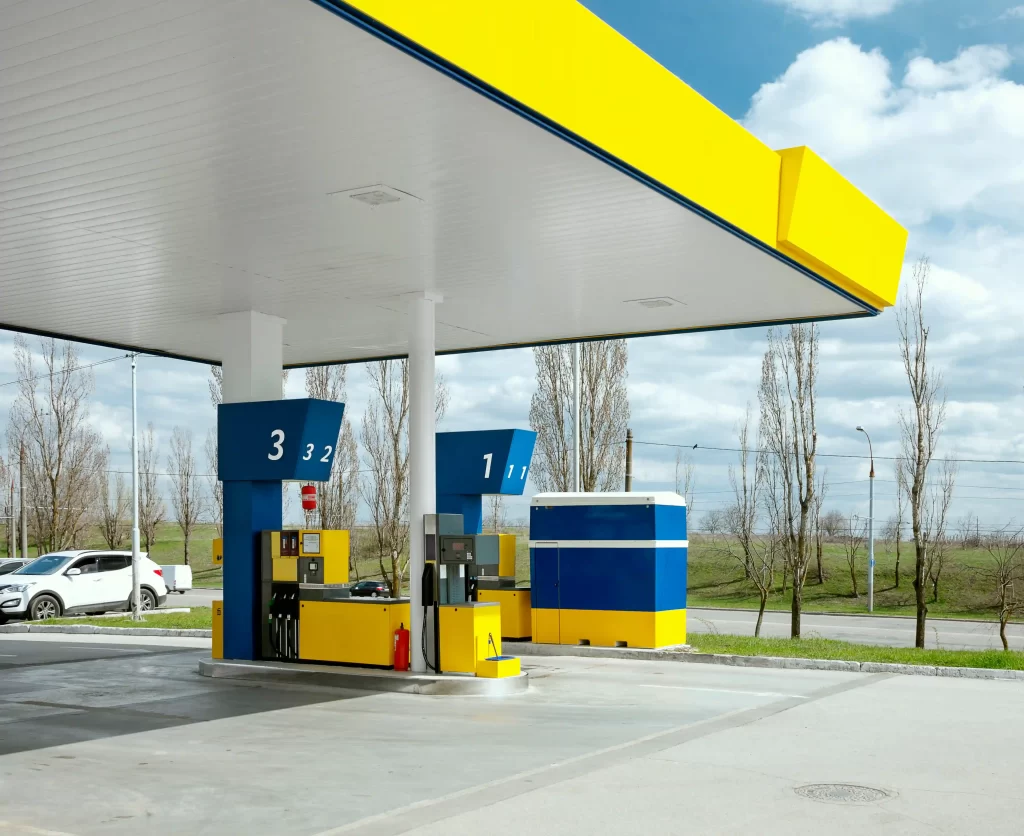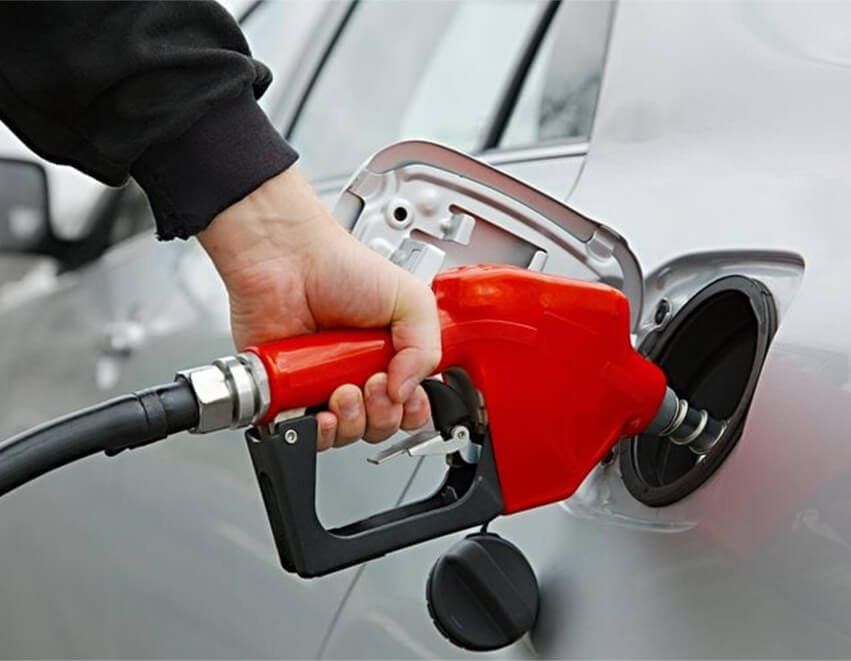Opening a gas station offers a powerful entry into the retail fuel industry. Research shows successful stations average $1.3 million in annual revenue, with convenience operations generating up to 70% of total profits. Ready to join this lucrative market? From land acquisition to equipment selection, we’ll break down exactly what investments you’ll need. What essential […]

Opening a gas station offers a powerful entry into the retail fuel industry.
Research shows successful stations average $1.3 million in annual revenue, with convenience operations generating up to 70% of total profits.
Ready to join this lucrative market? From land acquisition to equipment selection, we’ll break down exactly what investments you’ll need.
What essential startup costs should you plan for? How much capital will you need? Let’s explore the key investments that will set your station up for success.
Starting a gas station means tackling a mix of big expenses right from the get-go. Let’s look at the major ones, from buying land to building out the station itself.
Land is your first major expense, and it doesn’t come cheap.
Buying land can set you back anywhere from $50,000 in quieter areas to over $1 million in high-traffic spots.
Leasing is another option, with rents ranging from $10,000 to $50,000 a month, depending on the location.
Prime locations—like those near highways—might cost more but can bring in more customers.
On top of land costs, factor in zoning permits and compliance fees to make sure the site is legally ready for a gas station.
Whether you buy or lease, think long-term: owning gives stability, while leasing cuts upfront costs.
Once the land’s sorted, it’s time to turn it into a gas station.
Building from scratch can cost anywhere from $1 million to $2 million, depending on the size and features.
Renovating an existing station might be cheaper—around $450,000—but it depends on what needs upgrading.
Big expenses include fuel storage tanks, petrol station pumps, and convenience store setups.
Gas station fuel pumps alone cost $16,000 to $21,000 each, and you’ll likely need more than one.
Extras like air compressors, car washes, or even canopies for shade add to the price but boost your appeal.
Don’t forget parking, landscaping, and lighting—they’re small details, but they make the station more customer-friendly.
Getting the station up and running means investing in the right equipment and stocking up on essentials.
Here’s an overview of the costs associated with fueling equipment:
You’ll need an initial fuel supply, costing between $10,000 and $50,000.
If you’re adding a convenience store, budget for snacks, drinks, and automotive supplies—this could run another $10,000 to $30,000.
Starting with a well-stocked inventory ensures you’re ready to serve customers from day one.
Getting the right permits is non-negotiable when opening a gas station. Here’s what you’ll need:
Skipping permits risks fines or even a shutdown, so plan to spend $10,000 to $50,000 upfront.
Running a gas station isn’t just about setting it up; there are monthly bills to pay too.
Expect payroll to be a major chunk of your expenses. If you hire attendants, cashiers, or maintenance staff, it can cost you $8,000 to $12,000 a month, depending on the number of employees.
Utilities like electricity and water are another ongoing cost. Fuel pumps, refrigeration, and lighting don’t come cheap, with monthly bills often between $5,000 and $10,000.
Regular maintenance is crucial to keep everything running smoothly, from your petrol station pump to the convenience store coolers. Set aside a few thousand dollars a month for upkeep.
Fuel is the lifeblood of your gas station, and it’s also one of your biggest recurring expenses.
The price you pay for fuel depends on contracts with suppliers and global market rates. Lower fuel prices might mean more customers, but your profit margins will still be slim—usually 1% to 2%.
You can negotiate supplier contracts to lock in better prices, but you’ll also need to account for fluctuating fuel costs, which can directly impact your profitability.
Want to learn more about how to open a gas station?
How to Start a Small Fuel Station in the Philippines (10 Steps)
A Step-by-Step Guide to Opening a Gas Station
So, are gas stations profitable? They absolutely can be, but it depends on how you run the business.
Fuel sales typically bring razor-thin margins, around 1% to 2%, which means you earn just a few cents per gallon sold.
On the other hand, convenience store sales are where the real money is. Snacks, drinks, and automotive supplies can have margins as high as 30%.
If you’re offering extras like car washes, those can also boost your earnings significantly.
On average, a gas station can make between $5,000 and $15,000 a month in net profit, depending on the size and location.
Adding a well-stocked convenience store or offering premium services like car washes can push that number higher.
The key is diversifying your revenue streams so you’re not relying solely on fuel sales.
If you’re wondering how to afford all this, don’t worry—there are several ways to get the funds you need.
Bank loans are a common option. If you have a strong business plan, many banks are willing to lend for gas station ventures.
SBA loans (Small Business Administration) are another route. They offer lower interest rates and better terms for small business owners.
Private investors can also help if you’re willing to share ownership or profits.
Thinking outside the box can help, especially if funds are tight.
You can consider lease-to-own options for equipment or property to reduce initial costs.
Another idea is partnering with a fuel supplier, who might provide financing in exchange for an exclusive fuel contract.
If you’re asking, “How to open a gas station with no money?”, these strategies could be your answer.
If you don’t want to start from scratch, franchising a gas station is a great option.
Franchising usually starts with paying a franchise fee, which can range from $25,000 to $100,000. This gets you access to an established brand, training, and support.
You’ll also need to meet the brand’s requirements, like securing a location and adhering to their design standards. Franchisors often provide guidance on setting up and running the station.
The biggest benefit is the brand recognition—you’ll already have a customer base from day one.
But franchising also comes with ongoing fees, and you may have less flexibility to make decisions about your business.
If you’re willing to follow the rules, franchising can be a profitable way to enter the petrol station business.
Main Costs of Opening a Gas Station
| Category | Estimated Cost | Notes |
| Licensing and Permits | $10,000 – $50,000 | Includes business, environmental, and health permits |
| Payroll (Monthly) | $8,000 – $12,000 | Based on staffing requirements and services offered |
| Utilities (Monthly) | $5,000 – $10,000 | Covers fuel pumps, refrigeration, and lighting |
| Fuel Inventory | $10,000 – $50,000 | Initial supply cost; ongoing costs will vary |
| Franchise Fees | $25,000 – $100,000 | For branded franchises, includes training and setup support |
Owning a gas station comes with reliable demand and plenty of opportunities to grow your income.
Fuel keeps customers coming regularly, but there’s also room to earn through extra services and products.
Here are the long-term benefits of owning one:
Opening a gas station is a big step, but having the right tools and support makes all the difference.
At Aocheng, we offer reliable equipment to set your gas station up for success, from fuel dispensers and pumps to storage tanks and flow meters.
Our fuel dispensers are built to handle busy stations efficiently—check them out here.
Need dependable pumps? We’ve got you covered with our full range of options here.
Looking for high-quality nozzles or accessories? You can explore them here.With 16 years of experience, we understand what gas station owners need. Visit our website to learn more about how we can help you create a successful and reliable station.
1. https://www.upflip.com/blog/opening-gas-station
2. https://www.petrocalassociates.com/blog/cost-to-build-a-gas-station




